Harmony Korine
b. 1974, Bolinas, California, USA
by Fergus Grealy
Fergus Grealy is a 20 year-old from Brisbane, Australia. He is a film school dropout, currently studying art history at the University of Queensland.
To a sizeable majority of film enthusiasts, the question of Harmony Korine being considered a 'great' filmmaker is a ludicrous notion. Most would automatically rule out any consideration of 'greatness' due to his low output of films, only having completed two feature length productions to date. Even more telling is the fact that Korine has continually attracted condemnation towards his distinctive directorial style from critics and members of the film industry. Widespread derision has focused on the absence of fully developed story lines and conventional structure in his films; his obscure and almost demented aesthetic sensibility; and claims that he intentionally sets out to shock his audience. Consequently, Korine is not even vaguely seen as a major power in contemporary film.
However, there is also a group of people who champion the work of Harmony Korine and consider these unfavourable views to be ignorant and desperate. In effect, a strong case could be made that Harmony Korine is vastly misunderstood. Equally, it could also be claimed that his detractors simply do not want to understand him, renouncing the unknown and succumbing to the age-old paradigm of rejecting the attempts of a new generation to redefine an art form because it is too taxing and challenging. (1)
I align myself with this view and assert that, in my opinion, Harmony Korine is indeed a 'great' director. He may not have produced an enormous quantity of work, but these films—Gummo (1997) and julien donkey-boy (1999)—reveal his considerable talent and a filmic mastery that belies his age and experience in the industry. It is clear that Korine is a true original, boasting an inimitable slant on his craft and a vision that he is determined to achieve at any cost. It is this desire to redefine the art form rather than rehash past film traditions that sets him apart from other contemporary directors. Still in his 20s, Korine already truly embodies the ideals of the auteurist tradition. He approaches cinema like nobody before him and, accordingly, should be considered a film 'great'.
In investigating the factors that have influenced the development of his idiosyncratic style, Korine's upbringing and family background offers some pivotal clues. Korine was born in suburban California and raised in Tennessee, both strongholds of one of his favourite subject matters—middle-class America. Although his inventive descriptions of his parents have differed from being “trotskyites” (2) to secretive recluses, (3) it has been said that his father was in fact a director of public access documentaries for American television channel PBS and his mother stayed at home with Harmony and his two siblings. In such an inconspicuous, even mediocre environment Korine was anything but, attending a 'progressive' school and, with the influence of his father, discovering the joys of cinema. These circumstances may well have influenced the initial formation of Korine's aesthetic—typified by the combination of highbrow intellectualism juxtaposed by the banality of the less salubrious; a bastion of high-concepts in surroundings saturated with mediocrity and simple-mindedness.
This combination of influences was further reinforced by his encounters of the varied forms of life in New York City, to where he relocated with his family when in his teens. In New York, he immersed himself in the city's repertory cinemas that screened auteurist films from Europe and the American avant-garde, but he was equally fascinated by the developing youth skateboard culture and the dilapidation of the city streets—the hobos, the sex workers, the scum. Korine has cited cinematic influences in Cassavetes, Godard, Herzog and Fassbinder (4), but has also stated that he is “influenced by negative things as well as what [he likes].” (5) In a profile of Korine for The Guardian, Sean O'Hagan clarified these 'negative influences', claiming that Korine is “obsessed by the more extreme detritus of American popular culture—tabloid TV, gangsta rap, deviant sex.” (6)
This wide-eyed fascination with the goings-on of the environment around him is evident in the script that the then 19 year-old Korine wrote for Larry Clark's controversial feature debut, Kids (1995). The script was insightful and perceptive, chronicling the lives of teenagers in mid '90s New York City with startling honesty, depicting their forays into gang culture, underage sex, drug use, disease and crime. At the core of the story are three teenage protagonists—Telly (Leo Fitzpatrick), whose favourite pastime is 'de-virginising' young girls; his underling Casper (Justin Pierce) who, among other things, dabbles in hard drugs; and Jennie (Chloe Sevigny) who has recently contracted AIDS from Telly. Countless other nameless faces frequent the film, playing equally lurid and frightening parts in the bleak and hopeless tale. The film never meanders, but never really goes anywhere—underscoring the dismal reality of the lives they lead.
Kids attracted much outcry for its brutal portrayal of its characters and was predominantly met with revulsion. This was primarily due to Clark's cold, unsentimental and sterile treatment of the kids. His direction was one-dimensional and unmoving, doing no justice to Korine's script, which showcased his incredible ear for dialogue. The performances in Kids were so authentic due to the verbosity Korine provided his characters with, flawlessly capturing the ignorance, cockiness and the self-imposed invincibility that the kids assumed. At the same time, Korine subtly underlined the fragility and naiveté that also predominates the age group. Unlike Clark's direction, this displayed the undeniable tenderness Korine directs towards his characters, a feature that is evident in his later directorial works.
In hindsight, Korine made claims that he would have made a vastly contrary version of Clark's Kids if he had assumed the role of director. He stated, “I would have made a very different film from Larry's. In fact, I'd have made it more non-judgmental and detached”, (7) emphasising the fundamental distinction between the way they both viewed the filmmaking process. Korine has shown that he is not interested in making judgements and creating 'meaning' in a film, he is more intent on presenting a story for its intrinsic values and instilling 'feeling' into film. The desired reaction to Korine's films is not that they contain some vague meaning (that ultimately leaves the audience feeling empty), he wants the film to 'feel right'.
This ideal is almost indefinable, but when it occurs it is instantly apparent. Never is it more evident than in Korine's directorial debut, the audacious and blatant Gummo. Indeed, in an interview for IndieWire Magazine, Korine said, “I wanted to make my movie the way they should be made. Something more like a feeling.” (8) The film presents a surreal slant on the breakdown of society in the fictional town of Xenia, Ohio, ravaged by a tornado a few years back and never having quite recovered from it. Not based on a concrete screenplay, the film is, at best, a rough assemblage of vignettes about the lives of the Xenia townsfolk—predominantly a group of “no-hopers” and simpletons in the rural American town.
It seems that the only narrative device that binds these characters together is their mutual location. There is an albino girl with a penchant for Patrick Swayze, a group of drunken hicks that start a wrestling match with a dinner table and chairs, two glue-sniffing teenage boys that hunt cats for a local restaurant, a pimp that sells time with a retarded woman, and even a gay teenager (played by Korine himself) who tries to seduce a black dwarf. And that just scratches the surface of Korine's mélange. These characters are the mutation of fallout from a mass media, MTV influenced society, affected by the failure of the family unit and a future devoid of hope. Their reactions to their situation are bizarre and perplexing, it seems that they are almost part of a 'freak-show'.
funny how Harmful beats Dave to the punch on baseball trivia
Responses to such a representation have incited claims of exploitation and manipulation. However, Korine attempts to instill integrity in these characters despite their imperfection and portray them without any judgment—there is no moral barometer, no characters in film to point out the flaws in these people. Even though Korine flaunts his use of 'freaks' and minority groups, they are just a tool for him to express his unique view of contemporary society. As American critic Matt Seitz claims, Korine's affection for his freak-show is evident in the way he portrays them, stating, “The rhetorical question a lesser filmmaker would have posed would read, 'Aren't these folks odd?' Instead, the movie asks, 'What's so odd about these folks?'” (9)
Korine's interpretation of the contemporary world around him makes Gummo special and creates an aura of artistic freedom that is infectious and permeates throughout. It is, as Seitz states, “alive in a way that few films are.” (10) Using the film's measly budget of $1.3 million to his advantage, Korine assumed total artistic control that was never interfered with in the way that major studio productions usually can be. Recognising this, Korine set about to make a film to his inimitable standards, challenging the status quo, dismantling the boundaries of filmic convention and redefining the cinematic experience.
It is obvious that Korine meticulously controlled every aspect of the film to his satisfaction. This included a dazzling manipulation of aesthetic features and postmodern strategies—including pastiche, the fragmentation of narrative structure and the breakdown of the distinction between 'high' and 'low' culture. By rejecting the use of a coherent plot, Korine allowed no rhythm or pace to eventuate, continually jolting the audience and forcing them to question the film that they are viewing. Constant juxtaposition of contrary scenes—such as the 'bubblegum' style segment of the albino girl and her Swayze obsession with the graphic sequence of identical twins bathing each other—furthers this technique. Matters are further confounded by Korine's humorous use of irony and effortless fusing of the mundane with the serious—a boy mourning his father's death by lifting weights made of cutlery to Madonna's “Like A Prayer”, or the intensity of the 'gang warfare' over turf rights for cat shooting.
There is so much detail, so many radical ideas crammed into the film that, as filmmaker Gus Van Sant famously quipped, “a chainsaw couldn't cut it.” (11) Perhaps the way in which Gummo perplexed audiences and critics alike is best summed up in a review by Jaime N. Christley.
…It is not a documentary. But what is it?…What is questionable is the very reality [that Korine] is recording, since it is clearly staged, or, more to the point, since it mixes fact with fiction to meet artistic ends… Where do the actors end and where does reality begin? And what are we to make of scenes that are unrehearsed and spontaneous, placed next to scenes that are clearly fabrication? (12)
The fact these questions are posed is unequivocal proof that Harmony Korine has produced an entirely original creation. Gummo is brimming with abundant ideas that constantly compete for the audience's attention, confounding and mystifying, and establishing a new way of looking at cinema. The genius of Korine is not simply that he can draw inspiration form such disparate influences into his films, it is the fact that he can filter all of these elements into one cohesive vision that is unique to him. In doing so, he has captured for himself and those that connect with the film, the sense of 'feeling' that he constantly desires. Although it is panned by many, to some it is undeniable that Gummo 'feels right'.
Showing his versatility as a filmmaker, Korine's next project was something of a departure from Gummo. Julien donkey-boy saw Korine adopting the contentious Dogme 95 doctrine. The doctrine comprises of a set of ten restrictive tenets that its architects—a collection of avant-garde Danish directors spearheaded by Lars von Trier—believed would make the film experience more pure and illuminative. When asked about his use of the doctrine, Korine responded that “…For [julien donkey-boy] it seemed to make sense. It was liberating. I want to make different kinds of movies in different ways…” (13) It is possible that Korine wanted to make a far more concentrated and resolute film, and felt that the overload of ideas and constant tangents that Gummo took could be pared down by the discipline of the Dogme guidelines.
Even though the film is not based on a fully developed screenplay, the plot of julien donkey-boy is far more concrete than that of Gummo. The film centers on the torment and joy of the life of Julien (Ewen Bremner), a schizophrenic loosely based on Korine's own uncle of the same name. Julien is part of a highly unstable family—a much-talked about mother that is no longer around; a father (Werner Herzog) who alternates between taunting his children to telling magical dinner table stories about Brezhnev and Dirty Harry; sister Pearl (Chloe Sevigny) who is carrying Julien's baby; an aspiring wrestler for a brother (Evan Neumann); and a dog loving grandmother (Joyce Korine) who is bordering on senility. This family situation forms the basic core of the storyline and the film never moves too far from this premise. Julien donkey-boy doesn't take the viewer on an epic journey or impart any significant meaning; rather it gives insight into the life of such a family and, more importantly, of a schizophrenic, a subject close to Korine's heart.
This narrative technique is achieved in masterful fashion. The film is made up of what seems to be fairly mundane parts—such as Julien washing the feet of his blind, ice-skater girlfriend Chrissy, or asking bystanders which tree on the street is his family tree—that do not mean much on their own. But, cumulatively, they come together like an intricately weaved tapestry, creating a rich and tender portrayal of the film's protagonist. As critic Roger Ebert said, “[julien donkey-boy] doesn't always work in its individual moments, but it works as a whole. It adds up to something, unlike a lot of movies where individual shots are sensational, but they add up to nothing.” (14)
Whereas Gummo was brash and colourful, julien donkey-boy is far more muted in scope and in vision. The pace of the film is far more contemplative than its predecessor and it seems as though the vibrant colour scheme evident in Gummo has been stripped away for a gloomy landscape dominated by greys and blues. This is achieved to startling effect—Anthony Dod Mantle's camerawork is inventive and beautiful; the soundtrack is also stripped to its bare elements and lingers; and the performances, especially Ewen Bremner's phenomenal portrayal of Julien, are uniformly well measured and delivered. This mastery of film techniques indicates Korine's growing maturity as a filmmaker.
Although it may seem like a vastly different project, the hallmarks of the unique Korine signature prevail over julien donkey-boy. There is, once again, the bold use of music—traditional folk songs “Frère Jacques” and “My Bonny Lies O'er The Ocean” are an example of the many songs that are used in an entirely new context. And, of course, there is Korine's cheeky sense of humour—the film's strong religious overtones are provided by a schizophrenic, and wit is evident in virtually every word of dialogue that Werner Herzog delivers in his portrayal of Julien's father. In fact, Herzog's performance seems to be the embodiment of Korine's aesthetic and vision. The performance, like Korine's incomparable style, expertly balances the precarious combination of 'high' culture with the 'low', includes ironic humour tempered with the serious, and reality with the surreal.
Since julien donkey-boy, Harmony Korine has been involved in plenty of film projects, namely the ambitious street fighting film Fight Harm that failed primarily due to injuries to the young director, and also the script for Larry Clark's Ken Park (2002). Having almost single-handedly redefined the perceptions of cinema at such a young age, the future augurs well for Korine. Due to his singular and original vision, Harmony Korine has changed the film process for evermore, and duly deserves to be considered a 'great' director.
© Fergus Grealy, April 2003
Endnotes:
See Sean O'Hagan, “Here's looking at you, kid”, The Guardian, 13 March 1999
Tom Cunha, “A Conversation with Harmony Korine, Director of Gummo”, IndieWire Magazine, 6 October 1997, http://www.angelfire.com/ab/harmonykorine/tomcunha.html
Werner Herzog, “Gummo's Whammo”, Interview Magazine, November 1999
O'Hagan, ibid
Gus Van Sant, “Forward” New Line Features: Gummo, 1997, http://www.finelinefeatures.com/gummo/topabout.html
O'Hagan, ibid
O'Hagan, ibid
Tom Cunha, ibid
M. Seitz, “Review – Gummo” New York Press, 1997
Seitz, ibid
Van Sant, ibid
Christley, J. “Gummo” Film Written, 1997, http://www.filmwritten.org/reviews/1997/gummo.htm
P. Zimmerman, ”Chaos Controlled”, Independent Film Magazine, 22 August 1999
Roger Ebert, “Julien donkey-boy”, Chicago Sun-Times, 5 November 1999
Harmony Korine
Filmography
As director:
Gummo (1997) also writer
Sunday (1997) music film clip for Sonic Youth
David Blaine: Magic Man (1998) short film for TV segment
julien donkey-boy (1999) also writer
OTHER CREDITS
Kids (Larry Clark, 1995) writer
Ken Park (Larry Clark, 2002) writer
Sassy magazine interview before the release of "Kids"
Chloe Sevigny in "Kids"
Jacob Sewell as "Bunny Boy"
Jacob Reynolds
Chloe Sevigny
October 17, 1997
'Gummo': Cats, Grandma and Other Disposables
The New York Times
By JANET MASLIN
October is early, but not too early to acknowledge Harmony Korine's "Gummo" as the worst film of the year. No conceivable competition will match the sourness, cynicism and pretension of Korine's debut feature. Turned loose with a camera and the emperor's new clothes, the writer of the vastly better "Kids" creates an aimless vision of Midwestern teen-age anomie, complete with drugs, garbage, dead cats and neat tricks like turning off Granny's respirator. When it comes to boy wonders exploring the cutting edge of independent cinema, the buck stops cold right here.
To be sure, "Gummo" has its champions: the director Gus Van Sant has described it as "an antic fried chicken wing," equated Korine with Tiger Woods, lauded the film's "sophisticated and refined cinematic dialogue of modern cultural influences" and expressed his own wish to make a film this good, although (with the exception of "Even Cowgirls Get the Blues") he has made nothing but better ones. Let's just say that viewers lured to "Gummo" by its intensive grunge and would-be creative audacity deserve what they get.
At the start of "Gummo," Korine accomplishes the rare feat of showing the worst of his hand within 30 seconds. Little kids spout obscenities in voice-over; cinematography (by the estimable Jean Yves Escoffier, who has worked with Martin Scorsese and Paul Schrader) is skittishly high-speed and hand-held and grainy; talk of a tornado hitting Xenia, Ohio, never manages to be poetically trenchant. ("I saw a girl flyin' through the sky and I looked up her skirt.") It won't be long before Bunny Boy, a character wandering through the film in grimy shorts and pink fluffy rabbit ears, is seen on a trash-strewn bridge, spitting and urinating on the highway below in silent protest.
Against what? Well, start by blaming the tornado and imagining the post-apocalyptic home movie hell in which "Gummo" unfolds. Korine casts nonprofessional actors, often freakish individuals whom the film flaunts contemptuously, like the simple-minded woman who treats a doll as her baby or the albino cook who proudly names Pamela Anderson and Patrick Swayze as her favorite movie stars. Not to mention the chubby, painted, dim housewife who is sold by her husband (Max Perlich) as a prostitute to very young boys. The lads earn the money for this by killing cats and selling the corpses to a restaurant supplier.
Korine has dreamed up these details and assembled his performers, but further directorial instruction does not apparently extend beyond asking the cast to conserve about a year's worth of laundry and litter. No cockroach wrangler was needed for "Gummo": Korine just shot the film on genuinely filthy sets.
Dirt is no crime, but willful stupidity should be. "Gummo" wallows so indulgently in the lives of its dead-ended characters that it shows none of the tough pathos behind "Kids," and not even the stylish, satirical decadence that has made a teen idol of Oliver Stone. Instead, it remains fully immersed in the numbness of its two principals, Tummler (Nick Sutton, whose star was born on a drug prevention episode of "The Sally Jessy Raphael Show") and Solomon. The latter is played by Jacob Reynolds, whose odd hangdog face has a precocious gravitas and who is one of the few performers here to emerge unscathed.
Among the boys' exploits is a visit to the home of their competitor in cat killing, where they arrive wearing fright masks and armed with golf clubs. They discover a cache of transvestite photos of the other boy. This is one of many ways the film loudly (and with no real dramatic purpose) vents its bigotry about gays and blacks. Then they find his comatose grandmother, who is breathing on a respirator, and exchange the following thoughts: "Is she dead?" "She's alive on that machine." "She stinks." "Her life is over." "She smells like baked ham." "She's dead as hell. Go over and shoot her in the foot. Try and wake her up: shoot her in the foot."
The respirator is turned off. "She'll be dead now," Solomon says. Tummler strokes the grandmother's hair gently. "She's always been dead," says he. Too bad for Granny, but look on the bright side: she does get to miss the rest of the movie.
Among the better-known names attached to small roles in "Gummo" are Linda Manz of "Days of Heaven," who plays Solomon's mother, tap dances and jokingly threatens to shoot him in the head for not smiling, and Chloe Sevigny of "Kids" as one of two tawdry blond sisters who love their pet cat. Ms. Sevigny is also credited with the ragged thrift-shop costumes that enhance the film's bleak, grimy look.
PRODUCTION NOTES
GUMMO
Cast: Jacob Reynolds (Solomon), Nick Sutton (Tummler), Jacob Sewell (Bunny Boy), Darby Dougherty (Darby), Chloe Sevigny (Dot), Carisa Bara (Helen), Linda Manz (Solomon's Mom) and Max Perlich (Cole).
Written and directed by Harmony Korine; director of photography, Jean Yves Escoffier; edited by Christopher Tellefsen; music by Randall Poster; production designer, Dave Doernberg; produced by Cary Woods; released by Fine LineTime Warner Features.
Running time: 95 minutes.
Rating: Thanks to occasional nudity, frequent profanity, glue-sniffing, dead pets and so on, "Gummo" has the NC-17 rating (No one under 17 is admitted) it richly deserves.
Harmony and Werner Herzog - "Julien Donkey Boy"
Sep. 15, 1999
Julien Donkey-Boy
(Experimental Drama)
By David Rooney
A Fine Line Features release (in U.S.) of an Independent Pictures production. Produced by Cary Woods, Scott Macaulay, Robin O'Hara. Directed, written by Harmony Korine.
Julien - Ewen Bremner
Pearl - Chloe Sevigny
Father - Werner Herzog
Chris - Evan Neumann
Grandma - Joyce Korine
Chrissy - Chrissy Kobylak
Neighbor - Alvin Law
The latest convert to the principles of Lars Von Trier's technically austere Dogma 95 manifesto is enfant terrible and "Kids" screenwriter Harmony Korine, who made his directing debut in 1997 with "Gummo." Following with "Julien Donkey-Boy," he brings his abrasively grotesque vision to the American family, portraying the schizophrenic title character and his almost equally unhinged clan in a blur of violence, incest, unsound parenting and finally, tragedy. Largely improvised and shot using many handheld digital video cameras, at times attached to the actors, the operation is perhaps more interesting in theory than it is on the screen, and appears too shapeless to attract a significant audience beyond hard-line experimentalism enthusiasts.
While "Gummo" cultivated some shock value and culled its characters from Appalachian Mountain white trash stock, "Julien" takes place in the considerably less interesting universe of suburban New Jersey, undermining any disturbing impact the material might have had with a rambling, unfocused approach that wears thin fast.
An attendant in a school for the blind, Julien (Ewen Bremner) is first seen befriending a young boy in the woods whom he impulsively bludgeons to death, an incident never referred to again. Later, he returns to the home he shares with his pregnant sister, Pearl (Chloe Sevigny), and abusive disciplinarian father (Werner Herzog), who obsessively pushes Julien's brother, Chris (Evan Neumann), an aspiring wrestler, to be the best.
Declining to develop anything resembling a narrative, Korine merely offers glimpses of the urban-Gothic family, some more revelatory than others. And despite the elaborate approach and layering of various editing and visual techniques, the result seems lazy and directionless.
Some of the more interesting sequences involve Herzog, who is an inspired piece of casting and the film's most truly creepy character. Professing his admiration for "Dirty Harry," insulting his daughter, forcing Julien to slap his own face, hosing down Chris or offering him $10 to put on his departed mother's dress and dance with him, the character has a perverse edge that makes the others seem unformed.
The film is at its best in the scenes in which Julien gets out of the claustrophobic space of his home and interacts with strangers in public places, many of whom reportedly were unaware of being filmed, thanks to hidden cameras. This works especially well in the tragic final act.
While the film's last 15 minutes have real dramatic impact, what comes before is somewhat numbing and lacking in narrative substance. Korine's gambit is to trowel on weird interludes such as a visit from an armless neighbor who plays drums, an amusing performance by a magician who simultaneously smokes and eats a pack of cigarettes and a Baptist church service in which Julien is transported by the pastor's words. But these touches fail to inject much nuance into the irksome family portrait.
Best known for his role as Spud in "Trainspotting," Bremner uses his awkward physical presence and halting speech patterns to inhabit the schizoid Julien, who swings unpredictably between tenderness and violence and was based on Korine's uncle. The normally impressive Sevigny is untaxed here by a poorly developed role, while other actors, aside from Herzog, fail to leave an impression.
"Julien" was shot by Brit cinematographer Anthony Dod Mantle, who lensed arguably the best of the Dogma 95 films, Thomas Vinterberg's "The Celebration" and Soren Kragh-Jacobsen's "Mifune." But while the mix of chaotic handheld sequences with freeze frames, stills, superimpositions and other devices creates a gritty visual texture, the raw technique and grainy 35mm blowup yielded better results when hitched to the more solid material of those earlier features. Korine infringes on the rules of the Dogma 95 credo especially in his wide use of music.
Camera (color), Anthony Dod Mantle; editor, Valdis Oskarsdottir; sound (Dolby SR), Brian Miksis; line producer, Jim Czarnecki. Reviewed at Venice Film Festival (Cinema of the Present), Sept. 5, 1999. Running time: 101 MIN.
Harmony on set - "Julian Donkey Boy"
Elvis Mitchell - Interview magazine
Harmony and Rachel Korine
Mr. Lonely portraits by Brent Stewart
TRASH HUMPERS
Geriatric Delinquents, Rampaging Through Suburbia
By JEANNETTE CATSOULIS
May 7, 2010
In 1999 Harmony Korine began a video project called “Fight Harm,” in which he encouraged random people to beat him up. Because of his success (otherwise known as injuries), that project was abandoned, but it continues in spirit with “Trash Humpers,” a film that cries out for its maker to be bloodied, perhaps unfairly, by critics and audiences alike.
At first glance (and second and third), it appears that Mr. Korine has handed an ancient camcorder to a quartet of geriatric mental patients, then released them into a parking lot to have sex with trash cans. Yipping and yowling, these crusty degenerates (two of whom are played by the director and his wife, Rachel) embark on a nighttime prowl through suburban Tennessee, defecating on driveways and fellating foliage. Behaving like drunken teenagers, they smash television sets and fornicate with obese prostitutes, the camera clinging for dear life to a jiggling, be-thonged rear capable of crushing watermelons.
Shot and edited on VHS tape that seems to have been fermented in a Dumpster, then gnawed by angry raccoons, the characters’ gleeful exploits unspool in freaky — and punishingly repetitive — vignettes. Designed to resemble an artifact that, according to the press notes, “was found somewhere and unearthed,” the film is a brutish stunt that slowly evolves into a nightmarish fairy tale. Its decrepit delinquents, concealed behind burn-victim masks and chanting snatches of old American folk songs, abduct a baby and invade a home, forcing the resident to eat pancakes smothered in dish soap. At one point the lone female shows a little boy how to secrete a razor blade in an apple — a scene that’s somehow more repulsive than the film’s other insertions.
Drawing inspiration from underground videos and urban legends, Mr. Korine builds an increasingly troubling atmosphere of decay and deviance. Off-screen grunts accompany crawling close-ups of bloody sneakers and a corpse’s wrinkly scrotum; a knife and an ax are snickeringly deployed. Much of this is just so much juvenile posturing, but every so often the screen freezes into something approximating beauty: a blurry, spaced-out, yellow-green landscape, as alien as an ancient photograph.
Even the humor is exotic, including a monologue on the benefits of headlessness (“Models would be judged by their shoulders”) and the hilarious sight of a character being turned on by a mailbox.
Idolized in some quarters and reviled in others, Mr. Korine, now 37, may be a bit long in the tooth for the enfant terrible act. But it’s impossible to dismiss completely a filmmaker capable of producing the charmingly surreal “Mister Lonely” (2007). And if there is a point to “Trash Humpers” beyond simply mooning the audience, it’s that this visual experiment — like Johnny Rotten’s sneering rendition of “God Save the Queen” — suggests a future martyred to greed.
“Make it, make it, don’t take it!” chant his vintage vandals, ranting against “entitled elites” and peeping in windows. However crassly delivered, Mr. Korine’s warning against over-consumption is unambiguous: these savages are our future, our “true seed.” The only surprise is that he didn’t include a shot of one of them violating this film.
TRASH HUMPERS
Opens on Friday in Manhattan.
Written and directed by Harmony Korine; director of photography, Mr. Korine; edited by Leo Scott; produced by Charles-Marie Anthonioz, Amina Dasmal and Robin Fox; released by Drag City. At the Cinema Village, 22 East 12th Street, Greenwich Village. Running time: 1 hour 18 minutes. This film is not rated.
WITH: Rachel Korine (Momma), Brian Kotzur (Buddy), Travis Nicholson (Travis), Harmony Korine (Hervé) and Chris Gantry (Singer).
Trash Humpers
2009 | 78 minutes
Photocopying one's naked ass is easy enough; the trick is getting other people to anoint the result as art. That's more or less what the reliably tedious provocateur Harmony Korine (Gummo, Julien Donkey-Boy) pulled off when this interminable piece of crap copped a big prize at the 2009 Copenhagen International Documentary Film Festival. It's a must-see for anyone who relishes lo-fi video footage of creeps in dime-store Halloween masks shtupping garbage cans, fellating trees, smashing TVs, dragging plastic baby dolls behind bicycles, doing herky-jerky dances, making high-pitched shrieking noises, and abusing musical instruments.
by Cliff Doerksen
Director: Harmony Korine
Producer: Charles-Marie Anthonioz, Amina Dasmal and Robin Fox
Cast: Harmony Korine, Paul Booker, Dave Cloud, Chris Crofton, Charles Ezell, Chris Gantry, Kevin Guthrie, Rachel Korine, Brian Kotzue, Brian Kotzur, Travis Nicholson and Page Spain
Rachel Korine and Raven Dunn in Brent Stewart's "The Dirty Ones," screening next month at Sundance
Sundance Kids Ride Again: Nashville Filmmakers Headed to Park City
BY JIM RIDLEY - DEC 11, 2008
Brent Stewart and James Clauer hit indie cinema's jackpot once again. Next month, the Nashville filmmakers will go to the Sundance Film Festival for the second time with official selections: Stewart as writer and director of a dramatic short, Clauer as cinematographer on a feature-length documentary.
Stewart was invited with his short film "The Dirty Ones," which stars Rachel Korine and Nashville School of the Arts student Raven Dunn as "two Mennonite sisters traveling throughout Southern states with the body of their dead grandmother lying in the trunk bed." Shot in Nashville, the short was produced by Korine's husband, filmmaker Harmony Korine (Mister Lonely), for the O'Salvation production company he founded with French fashion designer and film financier Agnés B. It was one of 96 short films selected for Sundance from a field of 5,632 entries.
Clauer was director of photography on Big River Man, for which director John Maringouin followed hard-drinking 53-year-old endurance swimmer Martin Strel on his 66-day quest to swim all 3,373 miles of the Amazon River. Executive produced by another Nashville native, Kevin Ragsdale (The Heart Is Deceitful Above All Things), the film screens in Sundance's World Cinema Documentary section.
Back in 2006, Stewart and Clauer became the first Nashville filmmakers with a project at Sundance. The occasion was "The Aluminum Fowl," a documentary short about a family of Louisiana cockfighters that wound up also at the prestigious Rotterdam Film Festival. Clauer directed, and Stewart served as editor and co-cinematographer. That film was also produced by Harmony Korine and O'Salvation.
"We're all gonna be out there," Clauer said via email. No word whether that includes little Lefty Korine, born two weeks ago to Rachel and Harmony. But it always helps to have an angel on your side.
"The Aluminum Fowl"

















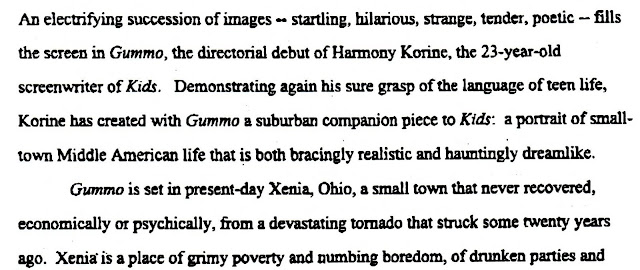
























































































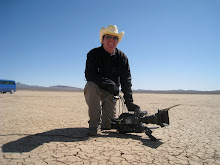


























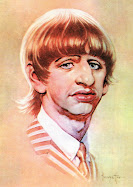






















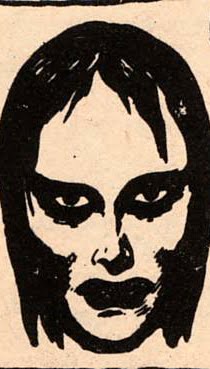









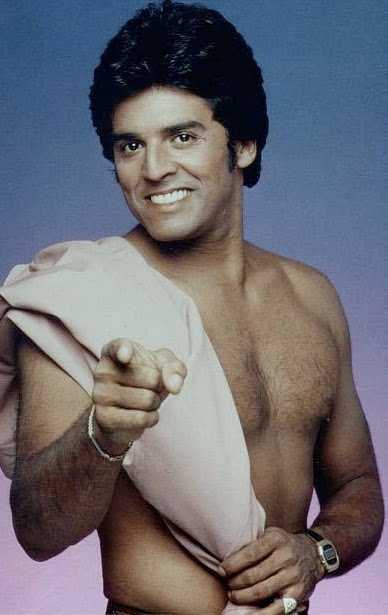









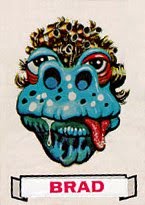























































No comments:
Post a Comment